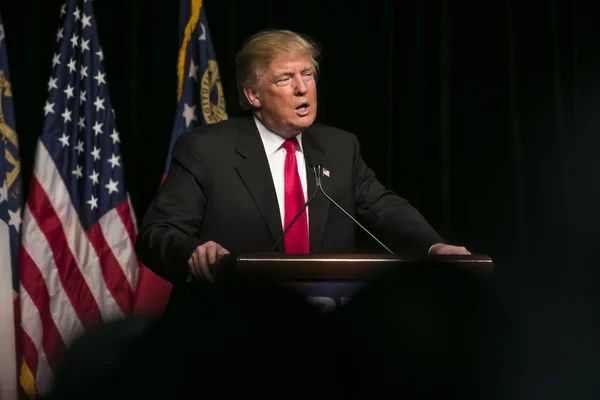
Former President Donald Trump faced indictment on Monday for charges including racketeering, conspiracy, and various other counts following a comprehensive investigation by Fulton County’s District Attorney Fani Willis into possible interference during Georgia’s 2020 election.
The grand jury’s indictment also targeted eighteen other individuals, among them Trump’s former attorney Rudy Giuliani and ex-White House chief of staff Mark Meadows. These individuals were alleged to have collaborated with Trump in unlawful attempts to manipulate the election results.
The indictment details the individuals as part of a criminal organization that violated the state’s Racketeer Influenced and Corrupt Organizations Act (RICO). Additional charges encompass offenses such as making false statements, impersonating public officials, submitting false documents, tampering with witnesses, conspiring to defraud the state, and perjury, among other accusations.
District Attorney Willis conveyed in a late Monday press conference, “Trump and the other defendants charged in this indictment refused to accept that Trump lost, and they knowingly and willfully joined a conspiracy to unlawfully change the outcome of the election in favor of Trump.”
One of the key instances highlighted in the indictment pertains to a conversation between Trump and the then-Georgia Secretary of State Brad Raffensperger in January 2021. The recorded conversation, subsequently released to the public, featured Trump urging Raffensperger to “find 11,780 votes,” which would have shifted the outcome in his favor. Throughout his assertions, Trump has continued to assert his victory in the 2020 presidential election and defend his efforts to challenge the results.
Trump, on his Truth Social platform, accused Willis of strategically delaying her investigation to influence the 2024 presidential race, shortly before the unsealing of the indictment.
This indictment follows a federal indictment from less than two weeks ago, which also centered on allegations of election interference. The previous indictment implicated Trump, along with six unnamed associates, in a scheme to overturn the 2020 election.
Separately, Trump has also faced charges in New York relating to falsifying business records connected to payments made to suppress alleged affairs during the 2016 campaign. He additionally faced indictments concerning the improper handling of classified documents at his post-presidential residence, Mar-a-Lago.
Public sentiment on these matters appears divided, with an April AP-NORC poll indicating that while the majority did not view Trump’s actions as illegal in the New York case, approximately half of respondents believed he had breached the law by mishandling documents and attempting to overturn the election results in Georgia.













